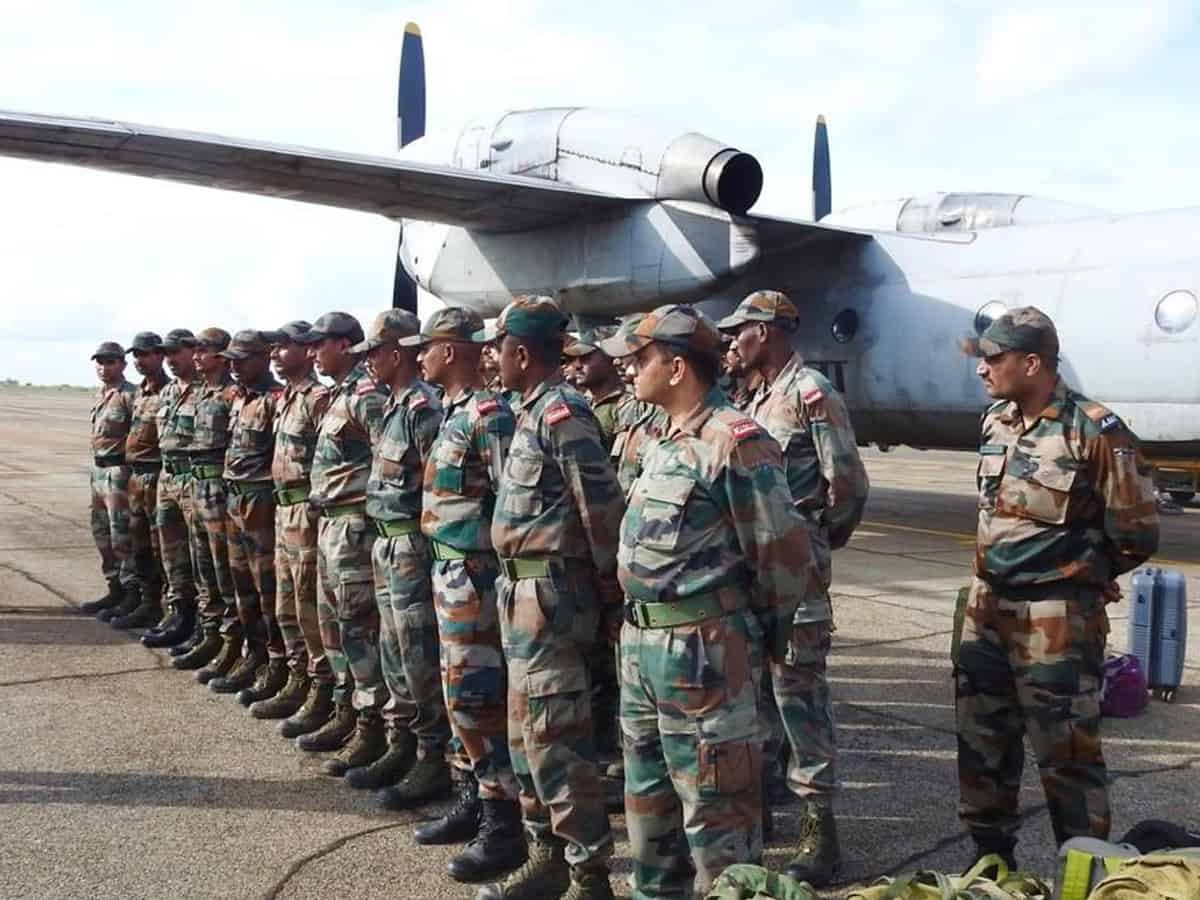
By Surya Kumar
Vijayawada: The Indian Army’s Operation Vijayawada to make the flood damage minimal in Andhra Pradesh’s capital region has made a big headway.
Columns of the Indian Army on Saturday made significant progress in the emergency response efforts following flooding of several areas owing to incessant rains caused by low pressure in the Bay of Bengal.
The joint efforts of the Indian Army and the civil administration completed the plugging of breach number 3 by the evening. The critical task will help prevent further flooding and ensure the safety of the affected areas.
IT Minister of Andhra Pradesh Nara Lokesh visited the site to assess the progress of the breach repair work. He was briefed by Lt. Colonel Amit, Column Commander, and the Officer Commanding, the Engineers, who detailed the extensive efforts undertaken to secure the breach and restore stability to the area.
Following directives from the Irrigation Minister, the civil administration is working to raise the embankment to a height of 10 feet. This enhancement is crucial to prevent any future breaches or overflows. The engineering task force is progressing with the work.
A medical team has secured 160 kg of essential medicines for malaria prophylaxis and leptospirosis, following effective coordination with the General Government Medical Hospital.
The Regimental Medical Officer (RMO) is en route to Ibrahimpatnam, where many villages are inundated and isolated. A medical camp is being established there to distribute the medicines. Additionally, two mobile medical detachments will be operational within the next hours to provide medical assistance and distribute medicines in the submerged localities.
The Indian Army will continue to monitor the situation and provide updates as more information becomes available. The health and safety of citizens remain the top priority, and the Indian Army is committed to ensuring that all necessary resources are mobilised to address the needs of the affected populations, the Union Government stated.



